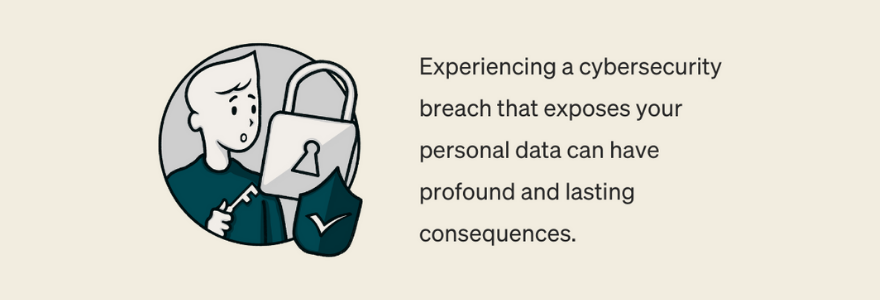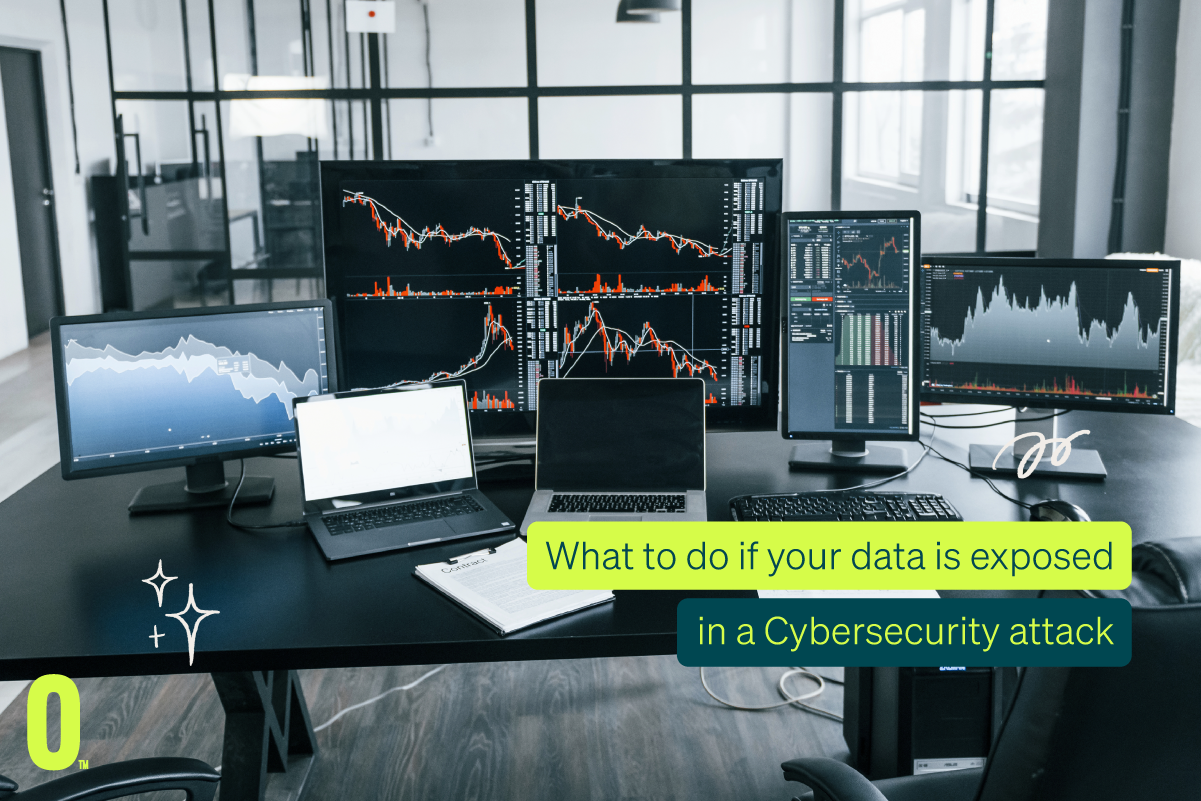In our increasingly digital world, the prevalence of cybersecurity attacks is a stark reality. The fallout from such breaches can be devastating, both personally and professionally. When your data is exposed in a cybersecurity attack, it’s crucial to respond swiftly and strategically to mitigate the potential harm. This article will guide you through the steps to take if your personal or business data falls victim to such an attack.
What is the impact of having your business data exposed in a data breach?
Experiencing a cybersecurity attack that exposes your business data can have severe and far-reaching consequences. The implications of such breaches go beyond the immediate breach itself.

For businesses, the financial repercussions can be substantial, with penalties for big companies potentially reaching up to $50 million, dependent on the severity of the breach. In fact, penalties could be even higher, determined by the company’s turnover and the assessed value of the compromised data.
The financial damage doesn’t stop there, as reported losses from cybercrime in the 2021-22 financial year paint a sobering picture: small businesses suffered average losses of $39,555, medium businesses $88,407, and large businesses $62,233. Shockingly, the self-reported losses in the same period amounted to a staggering $98 million.
These statistics underscore the real financial strain cyberattacks can place on businesses, alongside the reputational damage, legal implications, and loss of customer trust they entail.
What is the impact of having your personal data exposed?
Experiencing a cybersecurity breach that exposes your personal data can have profound and lasting consequences.

The breach can lead to identity theft, unauthorised access to sensitive information, and financial losses. Your personal information, including email addresses, passwords, and financial details, could end up in the hands of malicious actors who might exploit it for financial gain or even engage in impersonation scams. The breach can shatter your sense of privacy and security, leaving you vulnerable to various forms of cybercrime.
Additionally, the emotional toll of having your personal information violated can cause distress and anxiety. As such, responding promptly to such breaches and taking steps to secure your information become imperative to mitigate the potential harms.
Personal data: Protecting your digital identity
- Assess the scope of the breach: Determine what information was compromised, such as email addresses, passwords, financial data, or sensitive documents. This assessment will help you understand the potential risks.
- Change passwords: If your passwords were exposed, change them immediately for all affected accounts. Choose strong, unique passwords and consider using a password manager.
- Enable two-factor authentication (2FA): Turn on 2FA wherever possible. This extra layer of security provides an additional barrier for unauthorised access.
- Monitor accounts: Regularly review your bank statements, credit reports, and online accounts for any suspicious activity. Swiftly report any discrepancies to the respective institutions.
- Beware of phishing attempts: Cybercriminals may exploit the breach to send phishing emails. Verify the sender’s identity before clicking on any links or downloading attachments.
- Inform authorities: If your personal data breach includes sensitive information like your Social Security number, contact local law enforcement or a cybercrime reporting agency.
Business data: Safeguarding your professional integrity
- Activate your incident response plan: If your organisation has an incident response plan, activate it immediately. This plan outlines the procedures to follow in the event of a breach.
- Isolate affected systems: Isolate compromised systems to prevent the spread of the breach and further damage.
- Notify stakeholders: Inform employees, customers, and partners about the breach. Provide them with information on how it happened, what data was exposed, and what steps they should take.
- Consult cybersecurity experts: Engage professionals who specialise in cybersecurity to help assess the breach, close security gaps, and prevent future attacks.
- Engage legal and PR teams: Collaborate with legal and public relations teams to manage the legal implications and reputation fallout.
- Investigate the breach: Determine the source of the breach and the extent of the damage. This information will be critical in preventing future attacks.
- Patch vulnerabilities: Identify and address the vulnerabilities that led to the breach. Regularly update software and systems to stay ahead of potential threats.
- Improve security measures: Strengthen your organisation’s cybersecurity posture with robust encryption, firewalls, intrusion detection systems, and employee training.
Shared strategies for both personal and business data:
- Notify relevant authorities: Depending on the jurisdiction and type of data breached, it may be necessary to notify regulatory bodies or authorities.
- Offer assistance: If your data breach affects others, offer guidance on how they can protect themselves.
- Communicate transparently: Whether personal or business data is compromised, open communication is essential. Be transparent about what happened, and the measures being taken to rectify the situation.
- Educate and train: Both individuals and employees need to be educated about cybersecurity best practices. Regular cybersecurity training can significantly reduce the risk of future breaches.
In the wake of a cybersecurity attack, the way you respond can make a significant difference in the outcomes. Swift action, transparent communication, and a commitment to improving cybersecurity measures are key. By following these strategies, individuals and businesses can navigate the complexities of data exposure and emerge stronger, better prepared, and more resilient in the digital landscape.

Make your cybersecurity our problem – We’ve already got the solutions!
At Otto, a leading IT company and MSP in Melbourne, we’re all about the human side of tech – using proven, mature tech solutions to ultimately provide the best support and cybersecurity to your most important assets – your staff and customers. With our ISO27001 certification, affordable cybersecurity solutions and consulting services, it’s easier to secure your data, respond quickly to threats, and recover if an attack occurs. We’ll have your back, whatever your industry or the size of your business.
Book us for a FREE strategy call today! Let’s chat.



